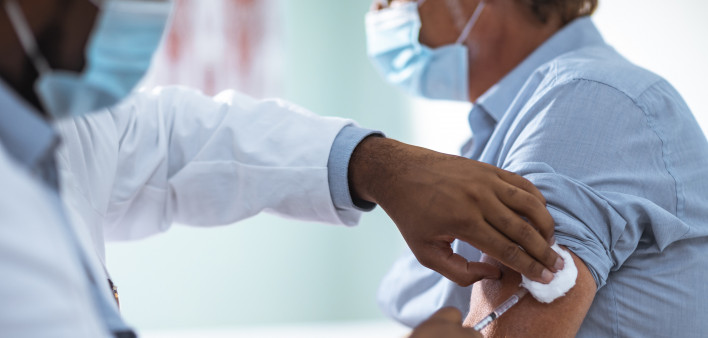Despite reports of allergic reactions to the two authorized COVID-19 vaccines, a group of allergists at Massachusetts General Hospital (MGH) suggest that the vaccines can be safely given to people who have food or medication allergies, according to a new review published in the Journal of Allergy and Clinical Immunology: In Practice.
Several people in the United Kingdom and United States who have received the Pfizer/BioNTech vaccine experienced allergic reactions. There has also been a reported reaction in a doctor who received the Moderna vaccine.
The MGH allergists summarized what’s currently known about allergic reactions to vaccines like those developed to prevent COVID-19. They then provided guidelines that include how individuals with different allergy histories could safely receive COVID-19 vaccination.
In addition, the team outlined steps to enable those who experienced an adverse reaction to their first dose of the vaccine to receive a second dose without any problems.
“Our guidelines are built upon the recommendations of U.S. regulatory agencies and provide clear steps to the medical community on how to safely administer both doses of the vaccine in individuals with allergic histories,” said Aleena Banerji, MD, clinical director of the Allergy and Clinical immunology Unit at MGH, and an associate professor at Harvard Medical School.
Banerji and colleagues recommend that people who have a history of severe allergic reactions not related to vaccines or injectable medications, such as food, pet, venom, environment or latex allergies, be vaccinated.
The FDA offers a similar recommendation, but also stipulate that those who have a severe allergic reaction to any ingredient in a COVID-19 vaccine shouldn’t be vaccinated. This advice is similar to guidance provided by the Centers for Disease Control and Prevention (CDC).
The agency counsels that people who have a severe allergic reaction after getting a first dose of a COVID-19 vaccine shouldn’t receive a second dose. In addition, the CDC proposed that those with non-severe allergic reactions to a coronavirus vaccine, such as hives, swelling and wheezing, also shouldn’t receive the second dose.
Finally, the CDC suggests that people who have had these kinds of immediate allergic reactions after receiving other types of vaccines should consult their doctor before getting a COVID-19 vaccine.
Allergists at MGH stressed that allergic reactions to vaccines are rare. However, to avoid any possible problems, the CDC recommends that people with a history of allergic reactions should be monitored for 30 minutes after COVID-19 vaccination, and others should be observed for at least 15 minutes, to allow swift management of any allergic reactions that occur.
For related coverage, read “Inside the First Chaotic Days of the Effort to Vaccinate America.”







Comments
Comments